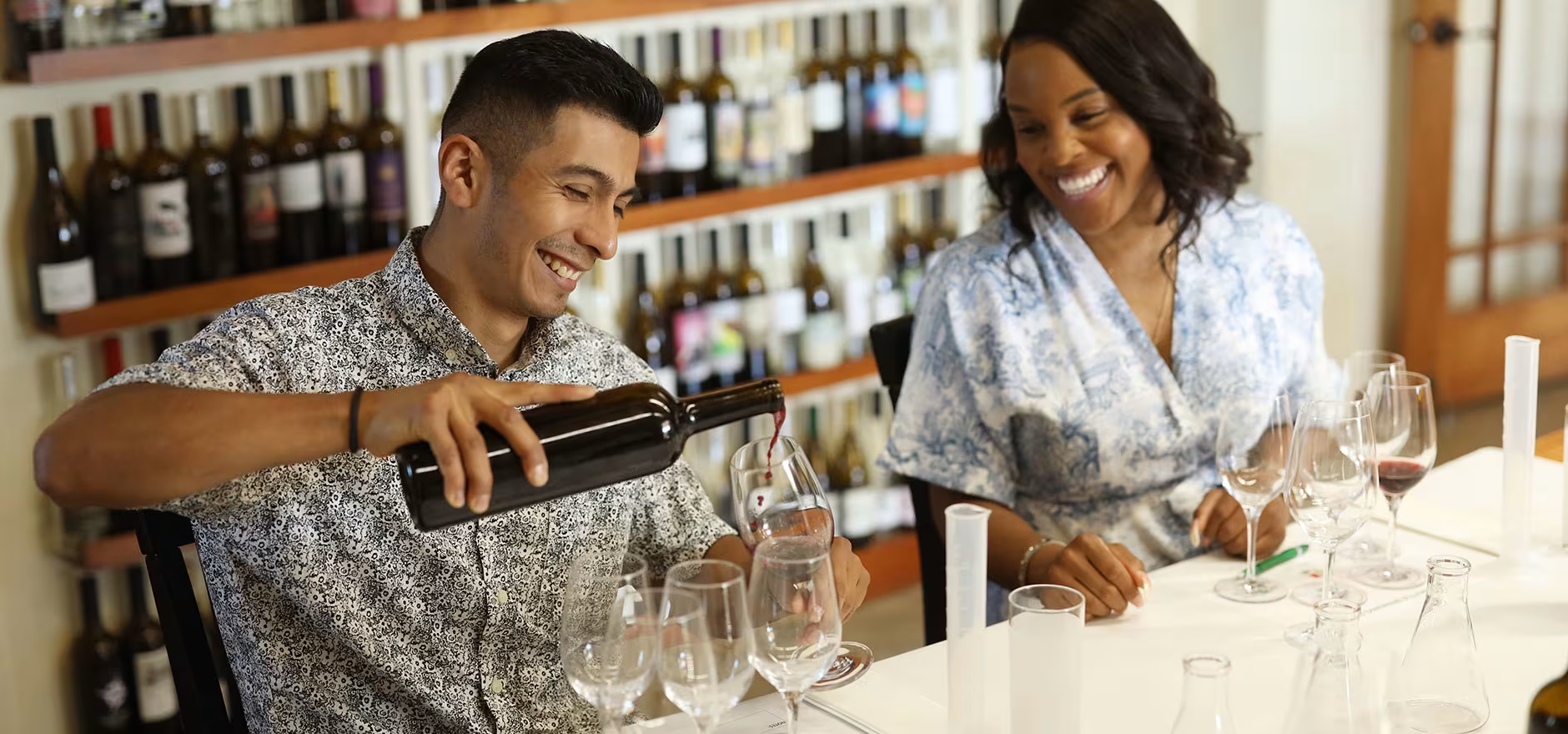Whether you’ve been stocking up on wine for some time or have just recently accumulated a collection, you may be wondering if you should store your favorite vintages away for later enjoyment or drink them before they “go bad.”
While some wines are designed to be drunk within a year and some are produced to stash away for a decade or more, the good news is that the majority of today’s wines are best enjoyed within a few years of release, so you don’t necessarily have to worry about investing in a state-of-the-art wine cellar.
Wine doesn’t exactly expire, but it can take a turn for the worse. Luckily, there are several precautions you can take to maintain the quality of your wine and ensure it stays fresh, whether you plan to drink it in two months, in two years, or have already opened it and are wondering how long it will last.
Tips on Proper Storage
Even if you haven’t opened a bottle, wine deteriorates much faster (4x faster, as a matter of fact) when stored at room temperature (around 70 degrees) than in a cool, stable environment. Even more, a bottle of wine should be kept away from direct sunlight because the sun’s UV rays can degrade and prematurely age wine. It’s also important to keep your wine bottles in a place that won’t shake or vibrate the juice inside. So, what to do if you’ve been storing your wine on top of the fridge or next to a window? The simple answer is: find a new storage location! Here are some helpful wine storage tips to take:
- Find a cool, dark place where the temperature stays relatively consistent, ideally between 50 – 60 degrees, away from direct light
- Store bottles on their side (this ensures the wine stays up against the cork, which keeps it from drying out and letting oxygen in)
- Store wine in a location between 50-75% humidity (avoid your kitchen or laundry room which can fluctuate in temperature)
- If you don’t have a cellar or cool basement, purchase a small, inexpensive wine cooler to store the bottles you’d like to last longer than a few years
Oops, I stored my wine improperly, now what?
Depending on how long your wine was stored in a less than optimal location, you may be fine. However, if your wine has changed in color to a more tawny hue, or you open it and notice it tastes or smells strange, like teriyaki sauce or old gym socks, then it may not be suitable to drink.
Watch for these signs your wine is no longer in prime condition:
- Relatively newer vintages of red wine that turned brown or white wine that has become yellowish brown
- A cork slightly pushed out from the top of the bottle (meaning it was incorrectly corked or has become overheated)
- A distinctively unpleasant smell (musty, vinegary, wet cardboard)
- Wine that tastes like mold or mildew
How Long Will That Open Bottle Last?
How long does wine stay good after opening? In general, wine lasts one to five days after being opened. The key is minimizing how much oxygen touches the surface when you store the open wine, to ensure it doesn’t oxidize and stays fresher for longer.
It’s true, the primary reason wines go bad is oxidation. Too much exposure to oxygen essentially turns wine into vinegar over time. So if you don’t plan to finish a bottle, cork it and stick it in the fridge to help preserve it. Even better if you can transfer the wine to a smaller vessel to reduce the amount of air the wine is exposed to.
Pinot Noir and lighter reds are considered among the more sensitive red wines when exposed to air. Other reds that won’t last as long once opened include wine over 8-10 years old, as well as organic or sulfite-free wine that is more fragile due to its lack of preserving agents. Try to drink these wines within three days of opening, and within five for bolder, fuller-bodied reds. White wine’s fresh fruit flavors and floral aromatics depend on freshness, which quickly fade after the bottle is opened. Experts agree the best time frame for drinking white wine is one to three days after opening.
Will drinking old wine make you sick? It won’t make you sick, but it will likely start to taste off or flat after five to seven days, so you won’t get to enjoy the wine’s optimal flavors. Longer than that and it’ll start to taste unpleasant. Your best bet? Always start by examining and smelling wine that appears suspicious in any way.
Now that you know the ins and outs of wine storage and expirations, we hope you will go and sip with confidence. Cin cin!













